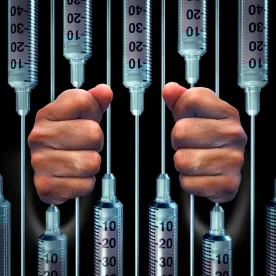Since the Department of Justice filed charges in April 2019 against 24 telemedicine and durable medical equipment (“DME”) company executives and physicians for their alleged participation in a $1.2 billion healthcare fraud scheme, telemedicine physicians continue to find themselves uncomfortably situated in the DOJ’s cross-hairs.
Despite the real-time benefits of telemedicine and its increasing growth—December 2018 figures from the American Medical Association approximate that 15% of physicians work in practices that use telemedicine for patient interactions—telemedicine physicians doing telemedicine work faced continued scrutiny as well as confusion surrounding the legal requirements of doing telemedicine work.
The DOJ’s focus thus far on prosecuting physicians has been focused in large part to those doing DME telemedicine work. This was the focus of the April 2019 takedown, and has been the focus of recent indictments like the one against New York anesthesiologist Anna Steiner. Steiner was arraigned in July on an indictment charging her in a telemedicine healthcare fraud conspiracy related to DME and prescription drugs, alleging she signed prescriptions and order forms for DME and drugs for patients whom she had not examined and evaluated, and for items that were not medically necessary.
Given the DOJ’s persistent focus on telemedicine entities and physicians doing telemedicine work, increased enforcement is likely here to stay. Though a primary focus thus far has been on DME, it is likely the DOJ will continue to expand its focus to other emerging telemedicine practices, including genetic testing.




 />i
/>i

